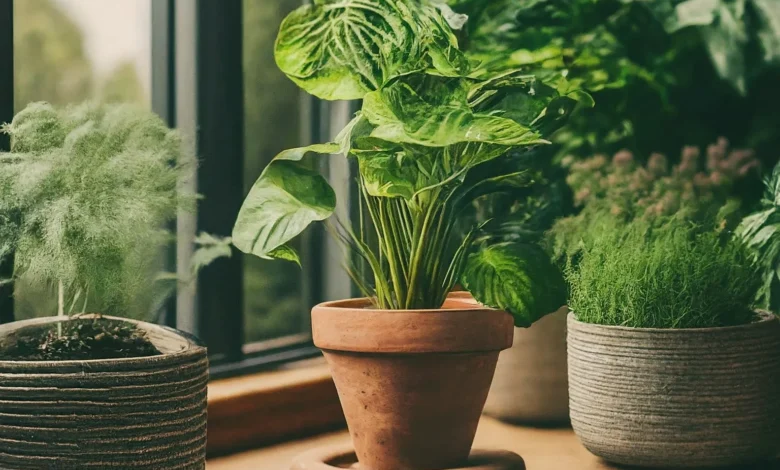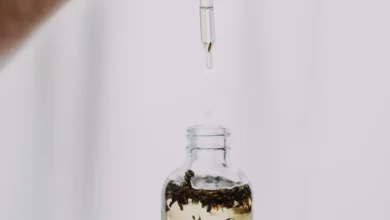Gardening for Self-Care: Boost Your Well-being

Gardening isn’t just about pretty flowers or fresh veggies. It’s a powerful tool for self-care. Imagine feeling calm, focused, and happy while digging in the dirt. That’s the magic of gardening self-care. In this post, we’ll explore how gardening can boost your physical health, calm your mind, and lift your spirits.
The Connection Between Gardening and Self-Care
What is Self-Care?
Self-care means taking care of yourself on purpose. It’s about doing things that make you feel good and healthy. Self-care is crucial for your well-being. It helps you manage stress and feel your best.
Gardening as Self-Care
Gardening fits perfectly into self-care. It gets you moving, connects you with nature, and gives you a sense of purpose. When you garden, you’re doing something good for yourself and the world around you.
A Brief History of Therapeutic Gardening
People have used therapeutic gardening for a long time. In the 1800s, doctors noticed that farm workers in mental hospitals seemed to feel better. This led to gardening becoming a treatment for mental health. Today, many hospitals and rehab centers use gardening to help patients heal.
Physical Benefits of Gardening
Gardening isn’t just fun – it’s good for your body too! Here are some ways gardening helps you stay healthy:
- Low-impact exercise: Digging, planting, and weeding get your body moving without being too hard on your joints.
- Vitamin D boost: Spending time in the sun while gardening helps your body make vitamin D, which is good for your bones and mood.
- Better hand strength: Using garden tools can improve your grip and make your hands stronger.
- Improved flexibility: Reaching for plants and bending to tend your garden can make you more limber.
These physical perks make gardening a great addition to your self-care routine. It’s exercise that doesn’t feel like a chore!
Mental Health Benefits of Gardening
Gardening isn’t just good for your body – it’s great for your mind too. Let’s look at how gardening benefits mental health:
| Mental Health Aspect | How Gardening Helps |
|---|---|
| Stress Reduction | Lowers cortisol levels, promoting relaxation |
| Mindfulness | Encourages focus on the present moment |
| Self-Esteem | Provides a sense of achievement and purpose |
| Anxiety | Offers a calming activity to reduce worry |
| Depression | Boosts mood through physical activity and nature connection |
Gardening gives your brain a break from daily worries. It lets you focus on simple, peaceful tasks. This can really help if you’re feeling stressed or down.
Emotional Benefits of Gardening
Gardening doesn’t just help your body and mind – it nurtures your emotions too. Let’s explore how:
Connection with Nature
When you garden, you connect with nature in a special way. You feel the soil in your hands and watch plants grow. This connection can bring a deep sense of peace and belonging. It reminds us that we’re part of something bigger.
Fulfilling Your Nurturing Instinct
Caring for plants taps into our natural desire to nurture. As you water, prune, and tend to your garden, you’re fulfilling this basic human need. This can be especially rewarding if you’re feeling lonely or disconnected.
Mood Boost Through Color Therapy
Gardens are full of beautiful colors. These colors can actually change how we feel. Bright flowers can make us feel happy and energized. Soft greens can help us feel calm and relaxed. By choosing certain plants, you can create a garden that lifts your mood.
Getting Started with Gardening for Self-Care
Ready to dig in? Here’s how to start your gardening self-care journey:
Choose the Right Garden for Your Space
- Indoor plants: Perfect for apartments or limited space. Try pothos or spider plants.
- Balcony or patio gardens: Use containers for herbs or small vegetables.
- Outdoor gardens: If you have a yard, you can plant directly in the ground.
Essential Tools for Beginners
- Gardening gloves
- Hand trowel
- Watering can
- Pruning shears
- Small rake
Easy Plants to Start With
For quick success, try these beginner-friendly plants:
- Succulents: Low maintenance and hard to kill
- Herbs: Basil, mint, and rosemary grow easily and smell great
- Marigolds: Cheerful flowers that are simple to grow
Remember, start small. It’s better to have a few healthy plants than to get overwhelmed by a big garden.
Incorporating Gardening into Your Self-Care Routine
To make gardening a regular part of your self-care, try these tips:
- Set realistic goals: Start with just a few minutes of gardening each day.
- Create a schedule: Pick a regular time for gardening, like early morning or after work.
- Practice mindful gardening: Focus on the feel of the soil, the scent of the plants, and the sounds around you.
By making gardening a habit, you’ll reap more benefits over time.
Overcoming Common Gardening Challenges
Don’t let obstacles stop you from enjoying gardening self-care. Here are solutions to common problems:
Limited Space
Problem: You live in a small apartment with no yard.
Solution: Try vertical gardening. Use wall-mounted planters or hanging baskets. Even a sunny windowsill can become a mini herb garden.
Time Constraints
Problem: Your schedule is packed, leaving little time for gardening.
Solution: Start small. Dedicate just 10 minutes a day to your plants. Choose low-maintenance plants that don’t need daily care.
Lack of Experience
Problem: You’re new to gardening and worry about making mistakes.
Solution: Begin with hardy plants that are hard to kill. Join online gardening communities for advice. Remember, every gardener was once a beginner!
The Ripple Effect: How Gardening Impacts Other Areas of Life
Gardening’s benefits extend beyond your backyard. Here’s how it can positively impact other aspects of your life:
Improved Nutrition
Growing your own fruits, vegetables, and herbs can lead to healthier eating habits. Fresh produce from your garden is packed with nutrients and free from harmful chemicals. Plus, you’re more likely to eat veggies you’ve grown yourself!
Environmental Awareness
Gardening connects you to the earth’s cycles. You become more aware of weather patterns, soil health, and the importance of pollinators. This awareness often leads to more eco-friendly choices in other areas of your life.
Social Connections
Gardening can be a social activity. Community gardens bring neighbors together. Sharing tips, seeds, or excess produce with friends can strengthen relationships. Your garden can become a gathering place for loved ones.
Conclusion
Gardening self-care is a powerful tool for improving your well-being. Let’s recap the main benefits:
- Physical health: Low-impact exercise and vitamin D exposure
- Mental health: Stress reduction and improved focus
- Emotional well-being: Connection with nature and mood enhancement
Remember, you don’t need a green thumb to start. Begin small, perhaps with a single potted plant. As your garden grows, so will the benefits to your mind, body, and spirit.
Therapeutic gardening isn’t just a hobby – it’s a journey of growth, both for your plants and yourself. So grab a trowel, get your hands dirty, and watch as gardening transforms your self-care routine.
Are you ready to experience the mental health gardening benefits for yourself? Start your gardening journey today. Your future self will thank you for planting the seeds of peace and well-being.



